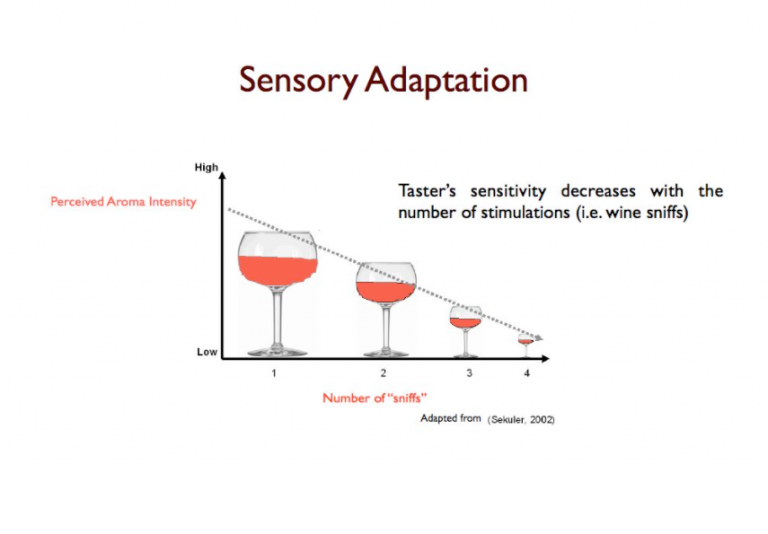Do you really See, Find out, Feel, and Smell A lot of? Could it Be Sensory Processing Disorder?

Our society is a kaleidoscope of feelings! We see, come to feel, smell, preference and hear what's taking place all around us. All of our senses exploit our feelings making you feel completely happy, excited or frightened or aggressive. Homeschooling makes it easier for parents to design demonstrations to use physical processing to boost children's particular attention, memory and learning. Home schoolers can use each of the sensory activities around all of us to stimulate children's awareness. If the physical input is definitely over-bearing for your child, you can lessen it and work in some quieter, tranquil place. Professors understand this nonetheless cannot have the same level of flexibleness in creating lessons seeing that Homeschoolers perform. Homeschoolers happen to be in the perfect position to use the feelings that work great for their own kids. Muti-sensory or maybe multi-modal coaching is coaching which uses many different sensory inputs.
Phrases and smells link jointly; words can certainly evoke recollections of views, smells and sounds, actually of emotions. Senses can evoke memories; but not each are happy as well as positive thoughts. Think of your feelings when you stink something which will remind you of childhood visitors to the dentist! Not to mention the irritation we all feel and complexity we have focusing on anything whenever we have an itch or a biting insect chunk! For some of people, lying on a blanket within tree, surrounded by grass, flowers and birds is the idea of joy. How comforted we look when we cuddle up right into a warm, gentle blanket! Many of us prefer passing time in a warm bath, with candlelight; although some just want to maintain the middle of a major, noisy get together!
Yes, most of us have different sensory processing and as a consequence different doubts to the physical world about us. Some people are sensory-seeking and prefer lots of activity, action and sound available us. That energises sensory-seekers, who actually function and concentrate considerably better when they contain intense physical input. Sensory-avoiding people are even more inclined to want to curl up in a part when there is excessively noise as well as action. Sensory-avoiding children should go into "shut down" when there is too much sensory input for the coffee lover. You will notice after that that they seem to be unable to presume or to abide by your recommendations.
A child inside wrong physical environment for their own certain sensory application, will be negatively affected. All their ability to put emphasis, focus focus and course of action the information are going to be diminished and they will struggle to learn. Often youngsters are labelled while having Add Hyperactive Disorder (ADHD) as well as Attention Deficit -- inattention type (ADD) considering that their physical processing is normally responding to a good sensory environment in a way that helps it be very difficult so they can learn. Whether or not your child essentially has AD/HD or INSERT, they will be even more in control of their behaviour plus much more able to uncover if they are within an environment perfect to their sensory processing desires.
Homeschooling enables the flexibility to present your topics using the sensory diet that is certainly best suited with your child's demands. If your child is a sensory-seeker, you can fill up the lessons with lots of pictures, mobility, touch and even smell; if your child may be a sensory-avoider, you will find out of which sensations support him to feel comfortable and happy pertaining to learning. This kind of must be one of many benefits of homeschooling - you may arrange environmental surroundings according to your child's specific sensory processing that help him to concentrate and pay attention to.
Homeschoolers can choose whether your kid's worksheets and books use a lot of colouring and pictures or are "quieter" text books with reduced visual arousal. Homeschoolers can certainly arrange for the youngster to keep his desk and have a quick movement respite, such as taking a basket-ball through nets for five minutes before going back refreshed and re-energised to learn the next area of the lesson. Learning math dining tables while showing a ball can easily be element of a successful home school lesson. Conversely, if your child needs a calm, still natural environment in order to listen and be inside 'just right' energy condition for optimum learning, you may place his desk within a quiet area of the house, chat quietly when ever teaching without have a lot of pictures and posters about him.

Precisely what is important for home schooling Mums and Dads is the fact you make some conscious note of your infant's sensory needs. Watch him carefully and pay attention to what generally seems to energise him and what seems to drain his energy levels or reduce his focus. Homeschooling parents can adapt your lessons to your children's sensory handling needs. It is not pandering on your child, this can be optimising his learning! Which is what just about Sensory Adaptation and teacher needs.
Teachers during formal schools still could make many arrangement. It is not only homeschoolers who will design lessons with sensory processing in mind; although it is easier when you don't a large number of kids in a big class. Through formal classes, the educator needs to make use of a multi-modal coaching approach and become aware of your children whose physical processing is it being negatively impacted by over or maybe under enjoyment. When you decide which usually desk a youngster should sit in, keep in mind the position from the distracting screen and which inturn children are perched near them. Allow movement-seekers a short action break by letting the students do 5-8 star-jumps following to their workdesk after every lesson and be aware of how the volume and tone of the voice impacts the kid's ability to hear and register what you are educating. Teaching in a formal university setting is somewhat more challenging when compared to it is meant for homeschoolers; yet adaptations might be introduced to also these formalized school lessons to ensure that all of the children inside the class are able to function in the their true level and show themselves as well as the world precisely how clever they are really. Be aware of the different sensory handling of the kids in your category and you have the main factor to powerful lessons. Happy children, comfy in their sensory environment are better enrollees.
